 |
| Rollei RPX 400 in medium format and 35mm |
In my post
Two Years On, I attempted to sum up the current state of black & white film production, and mentioned the wide range from Maco under the Rollei brand. I used
Rollei RPX 400 for this year's
'Take Your Box Camera To Work Day' day, and as it performed well in my very basic Lumiere Scoutbox, especially in comparison with the Fomapan 400 I also used on the day, it seemed worth further investigation. I'd bought the RPX films in medium format before, in both 100 and 400 speeds, partly due to being cheap, although there are very few stockists in the UK. Discussions on internet forums around whether the RPX films are
Kentmere films repackaged by Maco have elicited the information that RPX films are coated for Maco by Harman, Ilford's parent company which manufactures the Kentmere 100 and 400 budget films (see
this discussion on APUG). The limited availability of the RPX films in the UK provokes the question as to whether there is some agreement over the markets for these films - notably, this
page at AG Photographic redirects from RPX to Kentmere for 35mm films.
 |
| Medium format (6x9) developed in Rodinal 1:25, 9min45s at 18ºC |
At the time of writing,
West End Cameras is one of the few stockists of RPX films in the UK, priced at £4 a 36-exposure roll (by comparison, on the same site Kentmere 400 is £4.50; at other stockists Kentmere goes for:
Silverprint £3.61;
Firstcall £2.99;
edit 20/2/14: Silverprint are now stocking the range of RPX films, with both RPX 400 and RPX 100 retailing at £3.60). From
Macodirect, RPX 400 is €6.45 for a 35mm twin pack, which, at current exchange rates is roughly £2.75 per film. Obviously shipping from the continent is higher than UK postage; at these prices it makes sense to buy in bulk. In medium format, West End Cameras sells RPX 400 at £4.00 per roll, while from Macodirect it's €3.46, or a pack of five rolls for €16.67. (A further distinction between the two brands is that the Kentmere films are only available in 35mm, unlike the RPX films). For this post I'm only looking at RPX 400, but it would be instructive to compare the two films side by side.
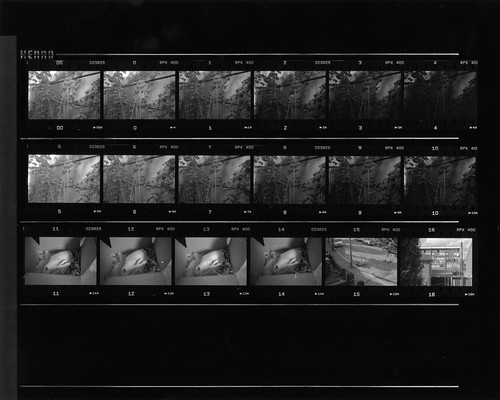 |
| Rollei RPX 400 latitude test contact sheet |
Having had good results from the medium format Rollei RPX 400 I'd used previously, I decided to make some tests in 35mm. For the first roll, I tested for the film's latitude. On the contact sheet above, the first six frames are rated, left to right, 200-400-800-1600-3200-6400; the next six frames in the second row run 100-200-400-800-1600-3200; the third row was all shot at 400. The film was developed in Rodinal 1+25 for 8 minutes at 20ºC, the manufacturer's recommended time for RPX 400 at box speed. The results appear to show that the film has a good working range of latitude, although as the tests were shot in good light, a more rigorous approach would also test for latitude in poor light where I'd expect the results not to be as good.
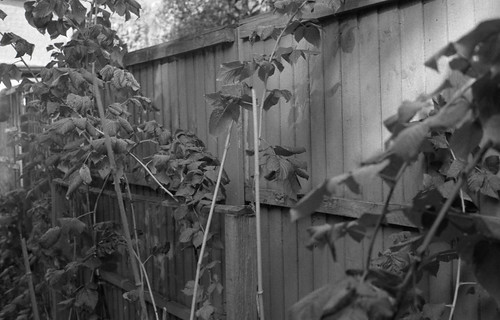 |
| Rollei RPX 400 at box speed, developed in Rodinal 1+25, 8 minutes at 20ºC |
The next tests were to push process the film. The ability to push a film must be directly related to its latitude, as push processing is simply underexposing and then overdeveloping to compensate. I shot a second roll at 800. With Rodinal, Maco's
only recommended times are for RPX 400 at box speed, while the
Massive Dev Chart gives times for 400 and 800 EI in Rodinal. At 800 the Masssive Dev Chart recommends 10 minutes using a dilution of 1+50 at 22ºC; as Rodinal seems to work better at lower temperatures, I used the same time, but diluted 1+25 at 20ºC.
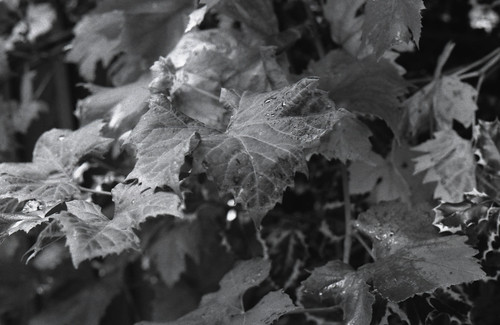 |
| Rollei RPX 400, rated 800 EI, developed in Rodinal 1+25, 10 minutes at 20ºC |
I also shot two rolls shot at 1600 EI. With no recommendations for developing RPX 400 in Rodinal at this rating, I extrapolated from the times given for other developers. For the first of two rolls rated 1600, I developed this in Rodinal diluted 1:25 for 14 minutes at 20ºC. As an alternative method for the second roll at 1600, I used stand development with Rodinal diluted 1+150 for three hours. This was based on the
good results I'd had with HP5 Plus at 1600. The benefit of using
stand development with highly dilute Rodinal is, in theory, lower contrast thanks to the compensating effect, thus countering the inevitable higher contrast inherent in push processing. The film stand developed in this way appeared to bear this out when compared with the film developed more conventionally at 1+25, although the scans below have lessened the difference, and this is more easily seen from examining the negatives.
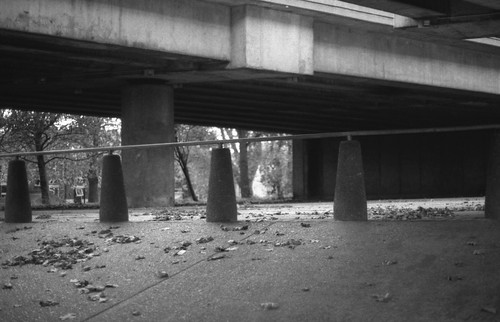 |
| Rollei RPX 400, rated 1600 EI, developed in Rodinal 1+25, 14m at 20ºC |
 |
| Rollei RPX 400, rated 1600 EI, stand developed in Rodinal 1+150 for 3 hours |
The reasons I'd originally used Rollei RPX 400 and 100 were to do with finding an alternative to the Fomapan films at a similar low price. Having taken the time to do some basic tests, the results show RPX 400 performing very well. Fomapan 400 does have a certain characteristic look that I do like, but the reason for buying Foma films has always been price. Foma also credit their 400 speed film with excellent latitude, but I have not found this to be the case when developing with Rodinal, and certainly when using a box camera with limited exposure controls -or none at all- latitude is very important (see the Massive Dev Chart's
400 ISO film test, where Fomapan appears worst in the latitude comparison). For a recent entry into the black and white film market, Rollei RPX 400 is a very welcome one, especially as it's available in both 35mm and medium format. The film has the look of a traditional cubic-type emulsion, and is quite fine-grained for its speed, in part due to the distinct softness of the grain, which also gives a smooth silvery quality to its tonality, and RPX 400 is a much better film than one might expect from its price.
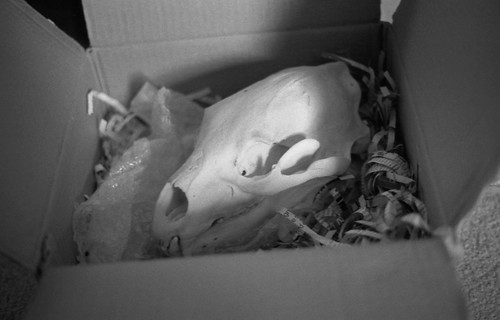 |
| Rollei RPX 400 at box speed, developed in Rodinal 1+25, 8 minutes at 20ºC |
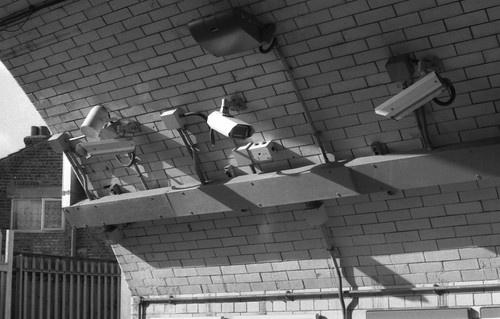 |
| Rollei RPX 400, rated 1600 EI, stand developed in Rodinal 1+150 for 3 hours |
 |
| Rollei RPX 400, medium format (6x9) |
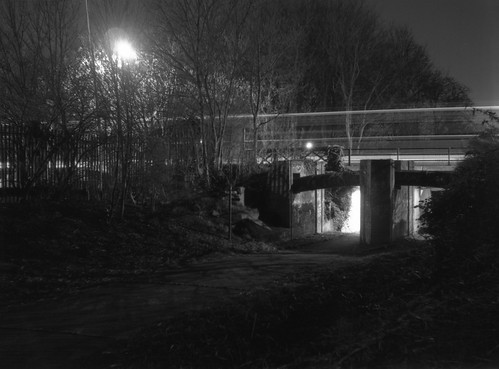 |
| Rollei RPX 400, medium format (6x4.5) developed in Rodinal 1+50 |
 |
| Rollei RPX 400, medium format (6x4.5) |












No comments:
Post a Comment